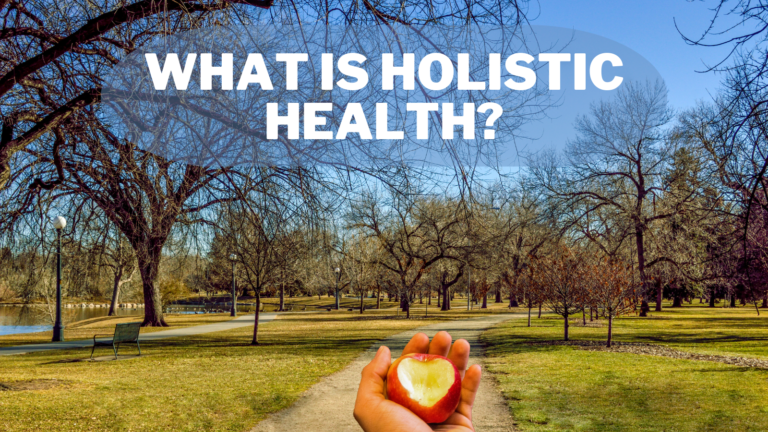Best Practices For Living A Life Of Gratitude
Best Practices For Living A Life Of Gratitude
Gratitude is a powerful emotion that can transform our lives. By focusing on what we have instead of what we lack, we can cultivate a positive outlook, build stronger relationships, and improve our overall well-being.
Living a life of gratitude requires a conscious effort to appreciate the good things in our lives and show appreciation for the people and experiences that bring us joy.
Here, we will explore some best practices for living a life of gratitude and how incorporating these practices into our daily routines can help us lead happier, more fulfilling lives.

Living A Life Of Gratitude
1. Write Down Your Gratitudes In A Journal
Make it a regular habit to remind yourself of the blessings, grace, advantages, and positive things you have. Setting aside time daily to recollect moments of thankfulness related to everyday occurrences, personal characteristics, or important persons allows you to weave a lasting theme of gratitude.
Writing down your gratitude in a journal is important for several reasons. Firstly, it increases appreciation. When we take the time to reflect on and write down what we are grateful for, we actively cultivate a sense of gratitude. This can help us to focus on the positive aspects of our lives and shift our attention away from negative thoughts and experiences.
Furthermore, writing down our gratitude in a journal can enhance our mental and emotional well-being. Studies have shown that practicing gratitude can lead to increased happiness, reduced stress and anxiety, and improved overall health.
Focusing on what we are thankful for can develop a more positive outlook, which can profoundly impact our well-being.
Additionally, a gratitude journal can record our blessings and allow us to look back and see how far we've come. Over time, we can see how our gratitude list has changed and grown, which can be a source of inspiration and motivation.
Finally, writing down our gratitude in a journal is a simple and accessible practice that anyone can do. It requires no special equipment or resources and can be done anywhere, at any time.
By incorporating this practice into our daily routines, we can positively impact our lives and develop a greater sense of gratitude and appreciation for the good things in our lives.

2. Keep In Mind The Negative
It's good to recall the difficult moments you've gone through to be appreciative of your present situation. You create an obvious contrast in your mind when you recall how tough life used to be and how far you've gone, and this difference is fertile ground for gratitude.
3. Pose Three Questions To Yourself
Use the Naikan meditation method to ponder three questions:
- “What did I receive from a friend or significant other?”
- “What did I give back to them?”
- “What obstacles and problems did I cause them?”

4. Study Gratitude Prayers
Gratitude prayers are considered the most potent type of prayer in many spiritual traditions because they allow individuals to understand the ultimate source of everything they are and will ever be.
5. Regain Your Senses
We develop an understanding of what it is to be human and what a great marvel it is to be alive via our senses—the capacity to touch, see, smell, taste, and hear. The human body is not just a marvellous structure but also a gift when seen through the perspective of thankfulness.

6. Visual Reminders Are A Great Way To Stay On Track
Because forgetfulness and a lack of conscious awareness are the two main barriers to appreciation, visual reminders may trigger thankful thoughts. Other folks are often the greatest visual reminders.
7. Make A Promise To Yourself To Practice Gratitude
According to research, swearing to conduct a behaviour increases the chance of the action being carried out. As a result, compose your own thankfulness vow, which may be as simple as “I promise to count my blessings every day,” and display it someplace you'll see it every day.

8. Be Aware Of Your Language
The use of language can have a significant impact on our attitudes and perspectives. Words like “gifts,” “givers,” “blessings,” “blessed,” “fortune,” “lucky,” and “plenty” are often associated with gratitude and a positive outlook on life.
By focusing on these words and expressing gratitude for the good things that others have done for us, we can cultivate a thankful and appreciative mindset.
This, in turn, can lead to greater happiness and contentment. So, it's important to be mindful of our language and choose words that align with our desired outlook and attitude.
Using grateful language can also improve our relationships with others. Expressing gratitude for the actions and support of others can strengthen bonds and build trust.
Additionally, focusing on the positive can help shift our focus away from negative thoughts and experiences, improving our mental and emotional well-being.
Furthermore, using grateful language can also help to cultivate a growth mindset, which is the belief that our abilities and qualities can be developed through effort and perseverance.
When we express gratitude for the good things in our lives, we acknowledge that they are not simply the result of luck or natural talent but also the result of hard work, determination, and support from others.
In conclusion, paying attention to our language and incorporating grateful terms can significantly impact our outlook, relationships, and well-being. Focusing on the positive and expressing gratitude can cultivate a thankful and appreciative mindset that can lead to greater happiness and contentment.
9. Practice Gratitude Regularly
Gratitude should be activated if you go through the motions of being appreciative. Smiling, saying thank you, and sending letters of appreciation are all grateful movements.
10. Get Out Of Your Comfort Zone
If you want to get the most out of your thankfulness muscles, you'll have to go outside the box to find fresh scenarios and circumstances to be grateful for.

11. Don't Be A Snob And Value Everything
Gratitude does not have to be reserved for life's “major” events. Being grateful begins with appreciating all of life's blessings and realizing there is nothing too little to be grateful for. Don't leave anything out while practicing thankfulness, even if it's as basic as enjoying the clear weather or how fast your mailman brought your mail last Friday.
12. Be Grateful For The Trials You Face
Gratitude isn't only about being grateful for good things. Thinking about bad or challenging events may sometimes help you pinpoint exactly what you have to be grateful for.
Jack Kornfield, a Western Buddhist teacher, recalls an activity he conducted with a dad caring for his grandson while his son and daughter-in-law struggled with drug addiction.
Despite all that had happened to him, the guy was grateful for the compassion he had learnt to display and the influence he could have on others. Examine some of your own prior events to see how they have shaped you into the person you are now.

13. Develop A Mindfulness Practice
Every day, sit down and write down five to 10 things for which you are thankful. The key is to visualize it in your head and sit with the sensation of thankfulness in your body. If you do this daily, your brain will automatically become more thankful, and you'll feel happy after each session.
It just takes eight weeks of thankfulness practice for people's brain processes to alter, resulting in increased empathy and pleasure. What are you waiting for? Your brain is a powerful instrument, and teaching it to be grateful is all part of ensuring that gratitude comes more effortlessly as you practice.
14. Keeping A Thankful Notebook Is A Good Idea
Write down your happy ideas after your mindfulness session! Keeping a gratitude notebook may assist you in keeping track of and referring back to the good aspects of your life. Write down your positive ideas to help you stay focused on the topic.
When you put pen to paper, you cannot focus on the words you're writing without being distracted by other unappreciative ideas. After your thankfulness exercise, you may journal every day or return to it weekly or monthly.
15. Become A Volunteer
Many individuals find that giving back to others in their community helps them feel more grateful. Not only will it make you more thankful for things you may take for granted, but studies have shown that volunteering to assist others improves our own well-being and hence our capacity to be grateful.
Martin Seligman, a University of Pennsylvania professor, endorses this hypothesis in his book Flourish: A Visionary New Understanding of Happiness and Well-Being.
He discovered that volunteering is the single most dependable technique to temporarily raise your well-being after examining various factors that assist us in improving our well-being.
16. Speak Your Mind
It's not always enough to keep your thankfulness to yourself. You may boost your sentiments of thankfulness by expressing them to the people who matter to you.
SoulPancake, a nonprofit dedicated to discovering the “science of happiness,” conducted a study in which participants were invited to send a letter to someone they were thankful for. This activity boosted their happiness ratings by 2% to 4%.
Happiness levels increased from 4% to 19% when the same respondents directly called the person they were grateful for to express their thanks. Not only can expressing appreciation for someone make their day a bit better, but it may also help you to feel more grateful and happy in the long term.
17. Spend Time With Those You Care About
Spend time with your friends and family if you're having trouble feeling grateful in the present. It will help you become closer to them and deepen your friendship, but it will also allow you to practice thankfulness to individuals you care about. If they have problems coming up with ideas to help their friends and family, start simple.
Instead of waiting for your turn to talk, why don't you make sure you're paying attention the next time someone shares a tale with you? Alternatively, start a discussion with a problematic family member by complementing their new shoes or hairstyle.
18. Find Ways To Be Happier In Other Aspects Of Your Life
Gratitude may make you happy, but happiness can also make you thankful. There are various additional methods to improve your mood, such as exercising or engaging in an activity you like.
Once the endorphins start flowing, expressing gratitude will become even simpler, and you'll be able to compose list after list of all the things you're grateful for in your life.
The Benefits Of Practicing Gratitude In Daily Life
Gratitude is the practice of acknowledging and appreciating the good things in life. It involves reflecting on the things you're thankful for and expressing gratitude for them. Research has shown that incorporating gratitude into daily life can benefit your overall well-being.
These benefits include increased happiness and positive emotions, improved relationships, reduced stress and anxiety, better sleep, increased empathy and compassion, and greater life satisfaction. Practicing gratitude is a simple yet powerful tool that can bring positivity and joy into your daily routine.
1. Increase Happiness and Positive Emotions
Practicing gratitude has been shown to increase happiness and positive emotions by shifting one's focus from negative experiences and negative emotions to positive experiences and feelings.
Focusing on what you're grateful for makes recognizing and appreciating the good things in your life easier, leading to greater happiness and well-being.
Additionally, expressing gratitude through writing in a journal or telling someone directly can increase happiness and positive emotions by strengthening relationships and fostering a sense of connectedness with others.
Research has also shown that gratitude can stimulate the release of feel-good neurotransmitters in the brain, such as dopamine and serotonin, which can further boost feelings of happiness and positivity.
2. Improve Relationships
Practicing gratitude can improve relationships by promoting a more positive and appreciative attitude toward others. Focusing on the good things in your life, including the people in your life, can help you see the best in others and foster a sense of appreciation and gratitude for them.
Expressing gratitude towards others can also strengthen your relationships by making the other person feel valued and appreciated, increasing positive emotions and a stronger emotional connection.
In addition, gratitude can help reduce conflicts and negative feelings in relationships. Focusing on what you're grateful for in a relationship can help you overlook the small annoyances and disagreements and instead concentrate on the positive aspects of the relationship. This can improve communication and increase mutual respect and understanding, leading to stronger and more fulfilling relationships.
3. Reduced Depression & Anxiety
It greatly alters your life experience by teaching your brain to pay attention to and enjoy the simple things in life. Gratitude can improve your general health while reducing the negative emotions that we all want to experience less, such as worry, despair, and anger. It can also raise your happiness and well-being.
Research shows that it can lower stress and enhance physical and mental health. According to numerous research conducted over the previous ten years, people who intentionally list their blessings tend to be happier and less unhappy.
4. Increased Resilience And Stress Management
A grateful mindset makes you more tolerant of life's setbacks. By assisting you in managing stress, taking the time to express thankfulness may enhance your emotional well-being.
According to preliminary studies, a regular appreciation practice may also have physical effects. One study, for instance, discovered a connection between appreciation and fewer heart disease symptoms.
The link between gratitude and resilience. Adaptive coping skills are promoted by gratitude. Gratitude improves our emotional resilience and increases our inner strength to withstand stress by controlling good emotions like contentment, happiness, and pleasure.
5. Improved Sleep Quality
According to research published in the Journal of Psychosomatic Research, gratitude improves and lengthens sleep. This is probably because “you have more optimistic thoughts before you go to sleep.”
You can sleep more quickly and deeply by practicing gratitude meditation before bed. Sit or lie in a comfortable posture, then concentrate on your breathing. Start thinking about what you have to be thankful for, or consider your progress.
Allow any negative memories from the past to come to mind. Before retiring to bed, spend a few minutes writing down three things you're grateful for. This will help your mind stay on a good track and prevent it from falling into the pattern of making a long list of things that stress you out.
6. Empathy & Compassion
We are considerably less prone to compare ourselves to others when we appreciate what we have and who we are. The act of appreciation strengthens our positive emotions and feelings, such as happiness and empathy, while assisting us in letting go of toxic emotions, such as resentment and jealousy.
When we are thankful for someone or something, we develop a bond with them and join a broader network of reciprocity. Gratitude improves our interpersonal interactions, strengthens our ties to others, and fosters a sense of belonging.
7. Connectedness & Life Satisfaction
Gratitude is regularly and substantially linked to happier lives in positive psychology studies. Gratitude improves one's ability to experience joyful feelings, enjoy pleasant memories, maintain excellent health, overcome challenges, and forge close personal bonds.
Higher levels of thankfulness are linked to better lives in terms of good effect, self-esteem, pleasant emotions, optimism, autonomy, environmental mastery, relationships, personal growth, meaning in life, and self-acceptance, according to research.
Spend time cultivating strong bonds with people who are supportive of you. Take stock of your blessings and cultivate thankfulness.
Conclusion
Gratitude practice may be transformative: it has far-reaching consequences that range from improved mental health to improved interpersonal connections.
Gratitude allows you to appreciate the little victories in life, such as the bus arriving on time, a stranger holding the door for you, or the sunlight beaming through your window as you get up in the morning.
Each of these tiny experiences adds up to a web of happiness that enhances your capacity to see the positive over time.
It's easy to increase your capacity for thankfulness. It just takes a little practice. The more you focus on what you're thankful for, the more you'll discover more to be glad for!
Begin by looking around. Take note of the thank yous you express. Is it that much of a habitual reaction? Is it a spur-of-the-moment remark, an afterthought?
When you show gratitude in tiny interactions, how do you feel? Are you stressed, tense, and a touch sluggish? Examine your body to see whether you're physically moving on to your next encounter.
Each day, choose one encounter. Stop for a minute and take notice of your inclination to say “thank you.” Can you think of anything for which you're thankful, even if it's not the gesture itself? Then express gratitude.
According to Robert Emmons, a psychology professor and gratitude researcher at the University of California, Davis, there are two crucial components to practicing thankfulness.
We appreciate the excellent things we've received.
We recognize the role others play in bringing goodness into our lives.
Most of us understand the importance of thanking those who assist us or simply acknowledging what we are thankful for.
According to research, gratitude has been connected to various advantages, including enhancing your immune system and sleep patterns, feeling more hopeful and experiencing more joy and pleasure, being more helpful and giving, and feeling less lonely and alienated.
I trust you enjoyed this article on the Best Practices For Living A Life Of Gratitude. Please stay tuned for more blog posts to come shortly. Take care!
JeannetteZ
>>>Please click here to read my all-inclusive article about A Comprehensive Guide To Healing Naturally<<<
Your Opinion Is Important To Me
Thoughts? Ideas? Questions? I would love to hear from you. Please leave me your questions, experience, and remarks about this article on the Best Practices For Living A Life Of Gratitude in the comments section below. You can also reach me by email at Jeannette@Close-To-Nature.org.
You might also enjoy these blog posts:
How Having A Pet May Change Your Life For The Better
How To Build My Immune System Naturally
Homemade Face Masks For Glowing Skin
What You Should Know As A Gardener
Home-Made Remedies For Cracked Heels








